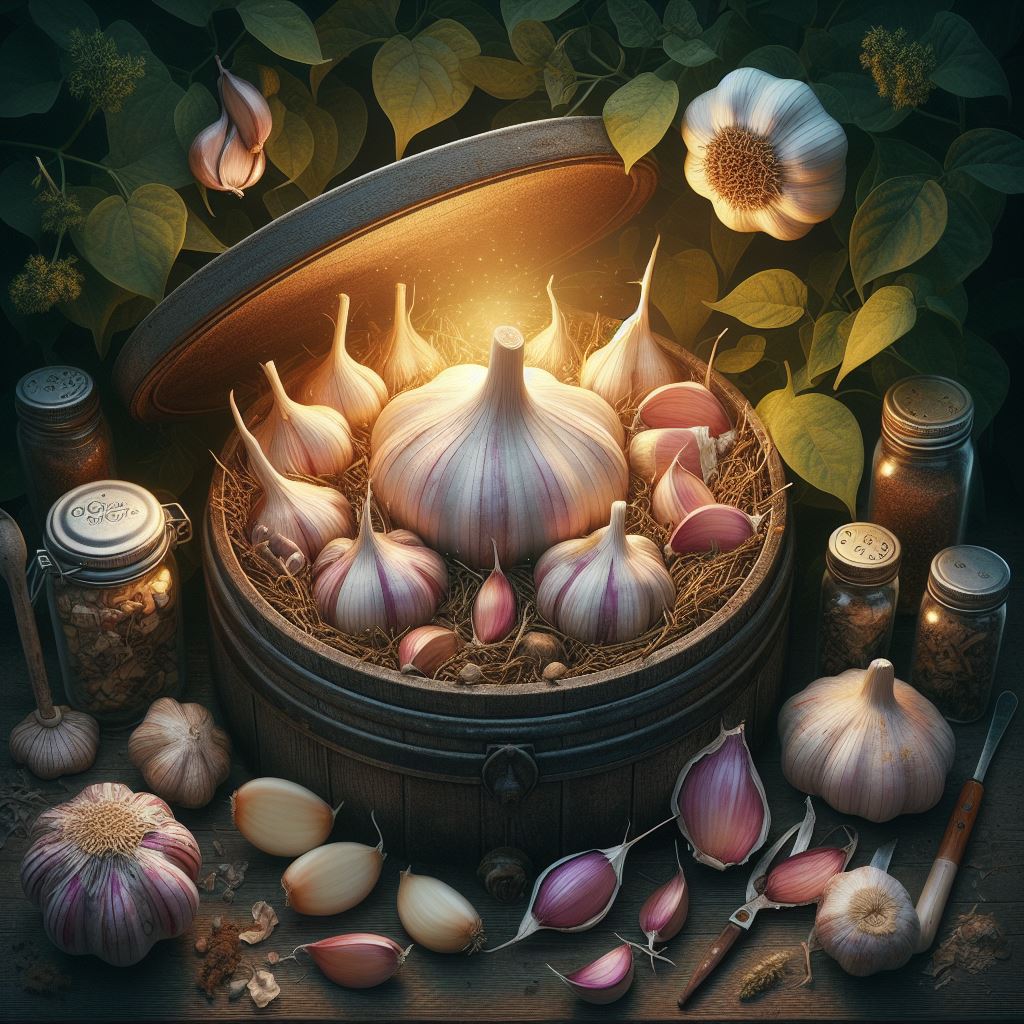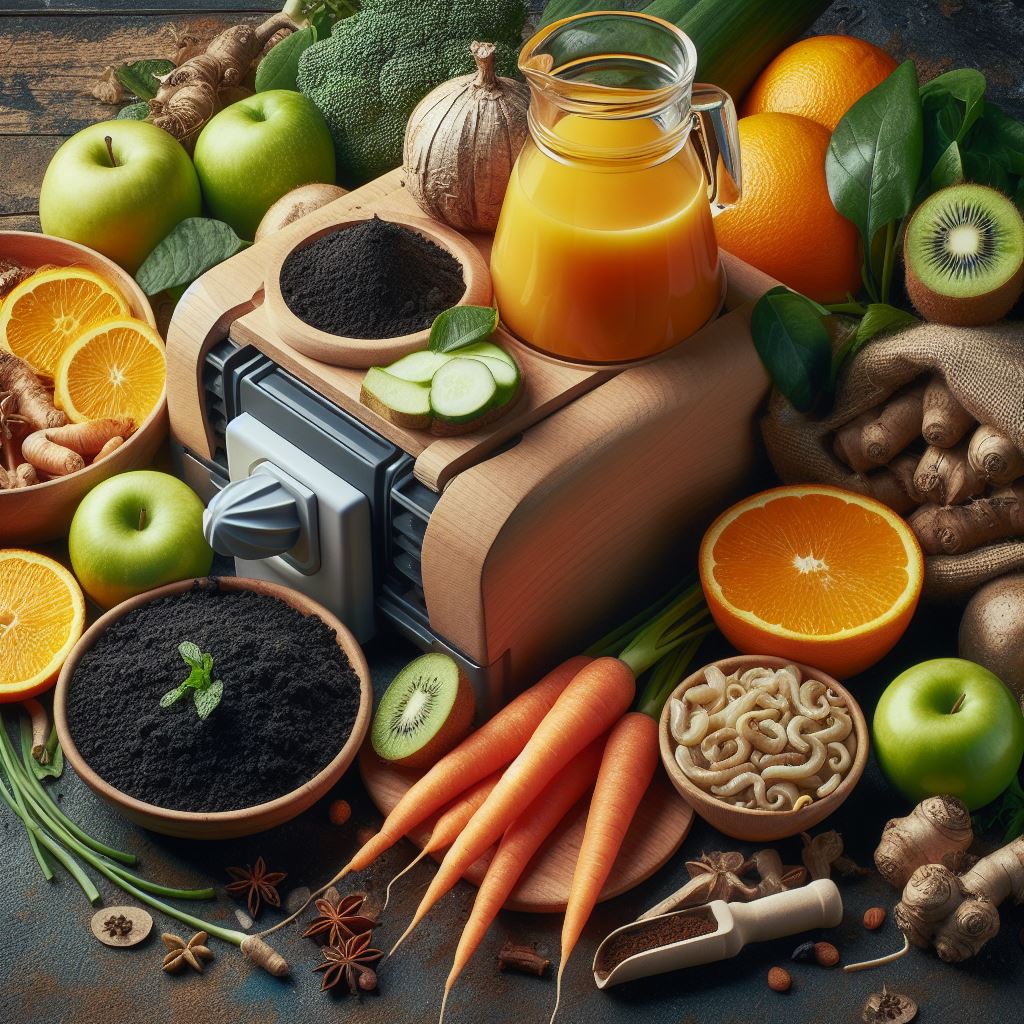Composting is an age-old method to recycle kitchen scraps and yard waste into “black gold” that nourishes your garden. Among the myriad of compostable materials, garlic stands out not just for its strong aroma but also for its unique benefits and considerations in the composting process. Whether you’re a seasoned composter or a novice, understanding how to effectively compost garlic and other organic plant magic can transform your garden’s health and productivity.
Why Should You Consider Adding Garlic to Your Compost Pile?
Understanding the benefits of garlic in compost
Garlic, beyond its culinary uses, is a fantastic addition to your compost. Its natural properties can significantly impact the microbial balance within your compost pile. Garlic contains compounds that are not only nutritious to your plants but can also help in controlling harmful pests. When decomposed, garlic releases sulfur compounds which can act as a natural fungicide, helping to protect your compost and, eventually, your garden from various diseases.
How garlic enhances the nutrient profile of your compost
Add garlic scraps and peels into your compost bin, and you’re essentially giving your compost a nutrient boost. Garlic is rich in nitrogen, a crucial element that helps in the growth of green, leafy plants and supports the overall health of your garden. As garlic decomposes, it releases nitrogen, enhancing the nutrient profile of your finished compost. This makes composting garlic not just beneficial for reducing kitchen waste but also for enriching your garden soil.
The role of garlic in deterring pests from your compost pile
One of the intriguing benefits of adding garlic to your compost is its natural ability to repel pests. While many pests are attracted to compost bins, the strong scent of garlic can act as a deterrent. Pests such as aphids and certain beetles don’t seem to mind staying away from the garlic-infused compost. This means that incorporating garlic into your compost pile can help in reducing the likelihood of pest infestations, keeping your compost healthy and working efficiently.
Common Issues With Composting Garlic and How to Solve Them
Dealing with the slow decomposition of garlic cloves and skins
Garlic cloves and skins can be quite fibrous, leading to a slower decomposition process compared to other kitchen scraps. To solve this, chopping garlic waste into smaller pieces can significantly speed up its decomposition. Additionally, balancing garlic with brown materials like dried leaves or shredded paper in your compost bin can help maintain the necessary carbon-to-nitrogen ratio, encouraging faster breakdown of organic matter.
How to prevent pests attracted by garlic in your compost
While garlic can repel many pests, it may attract others, such as flies, if not managed properly. Ensuring your compost is well-aerated and not overly wet can help deter pests. If you’re composting in a worm bin, it’s also a good idea to test your worms’ reaction to garlic by adding small amounts initially, as some worms are sensitive to the strong compounds in garlic.
Managing the smell of decomposing garlic in your compost bin
The potent aroma of garlic can become more pronounced during decomposition, which might be undesirable for some. To manage this, regularly turn your compost pile to aerate it, and cover fresh garlic additions with layers of brown material. This not only helps control the odor but also keeps the compost well-balanced and avoids attracting pests.
How to Properly Add Garlic Peels and Cloves to Your Compost
The importance of balancing green and brown materials
In composting, maintaining the right balance between green materials (like vegetable scraps and grass clippings) and brown materials (such as leaves and paper products) is critical. Garlic scraps, being high in nitrogen, are considered green material. They need to be balanced with brown materials to ensure a healthy decomposition process. This balance helps in creating an optimal environment for microorganisms to thrive, breaking down the organic matter into rich, nutrient-dense compost.
Chopping garlic for faster decomposition
Chopping garlic into smaller pieces before adding them to your compost can make a significant difference in how quickly it decomposes. Small particles provide more surface area for microorganisms to work on, facilitating a faster breakdown process. By accelerating the decomposition of garlic, you ensure that its beneficial nutrients are readily available to enrich your compost pile.
Incorporating garlic into your compost layering technique
Layering is a technique often used in composting, which involves alternating layers of green and brown materials. By adding chopped garlic among these layers, you can ensure that it is evenly distributed throughout the compost pile. This not only helps in even decomposition but also maximizes the benefits of garlic, like pest control and nutrient addition, throughout the entire compost.
Can You Compost Cooked Garlic and Rotten Garlic?
The difference between composting raw vs. cooked garlic
While raw garlic is undoubtedly beneficial for your compost, cooked garlic can also be composted. However, it’s important to note that cooked garlic, especially if it has been prepared with oils or salts, can be less beneficial and may attract unwanted pests. It’s best to add cooked garlic sparingly and ensure your compost is well-aerated to prevent any issues.
Guidelines for composting rotten or moldy garlic
Composting rotten or moldy garlic is perfectly fine and can add to the nutrient richness of your compost. However, like cooked garlic, care must be taken to chop it up and mix it well within your compost to avoid creating pockets of mold that could spread to other compost materials. This can aid in the efficient breakdown process of the garlic, preventing any negative impacts on your compost pile’s overall health.
How to avoid attracting pests with cooked or rotten garlic in compost
To minimize the risk of attracting pests with cooked or rotten garlic, bury it deep within your compost pile and cover it with a thick layer of brown materials. This not only helps in deterring pests but also aids in the absorption of any strong odors, keeping your compost healthy and smelling fresh.
Expert Tips for Optimizing Your Compost with Garlic and Other Kitchen Scraps
11 essential kitchen scraps that boost your compost pile
Besides garlic, there are several kitchen scraps that can significantly enhance your compost, including coffee grounds, eggshells, fruit peels, vegetable scraps, tea leaves, and grains. These materials add essential nutrients and encourage a diverse microbial environment in your compost pile.
Creating a balanced compost recipe with garlic and other alliums
Garlic, along with other alliums like onions and leeks, can create a powerful combination in your compost pile. However, it’s important to balance these strong-smelling scraps with plenty of brown materials to ensure a healthy decomposition process and to keep any strong odors at bay.
Maintaining your compost pile for best results with kitchen scraps
Regularly turning your compost pile, maintaining moisture levels, and balancing green and brown materials are key practices for optimizing your compost. By following these practices, you ensure that kitchen scraps like garlic decompose efficiently, contributing to a rich and fertile compost that will bring organic plant magic to your garden.





